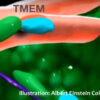Claim: Build Stronger Bones
Supplements: Calcium and Vitamin D
Taking daily calcium pills can increase bone density in people over 50 years old by 1 to 2 percent. But that’s not enough to prevent fractures, according to recent research. And contrary to popular belief, vitamin D alone doesn’t build bone. Learn more about these popular supplements.
• The (Many) Problems With Supplements• 15 Supplement Ingredients to Always Avoid
• What’s In My Supplement
What to do instead: Eat a balanced diet that includes foods rich in calcium and vitamin D, including milk and yogurt, mushrooms, eggs, fortified milk, soy beverages and salmon. Weight-bearing aerobic activities, such as walking and dancing, may slow bone loss. Aim for 30 minutes per day. Teens and people up to around age 29 need 1,100 mg to 1,300 mg of calcium daily. After age 30, get at least 1,000 mg of calcium and 800 IU of vitamin D daily to slow bone loss.
Claim: Improve Memory
Supplements: Vitamin B12, Ginkgo Biloba, Fish Oil (omega-3 fatty acids)
Indeed, people with vitamin B12 deficiency can develop cognitive impairments. That’s uncommon among young people, but more common among people over age 65. It is also more common among vegetarians. But if your B12 levels are normal, getting or taking extra vitamin B12 won’t give you a mental boost.
As for ginkgo biloba, research shows that it doesn’t improve or preserve memory. A study that followed more than 3,000 people for 6 years found that it didn’t decrease the incidence of Alzheimer’s disease or dementia, for example. In contrast, several studies have shown a link between higher blood levels of omega-3 fatty acids and a decreased risk of dementia. But an analysis of data from 3,536 people over age 60 who took fish-oil supplements for 6 to 40 months concluded that they didn’t improve cognitive function.
What to do instead: Get and stay active! Regular exercise and physical activity are probably the best protection against cognitive decline as you age. Although there’s no evidence exercise prevents hereditarily determined dementia, it may delay its onset. Also consider following the brain-boosting “MIND” diet: lots of veggies, nuts, whole grains, olive oil, some beans, fish and poultry, plus a daily glass of wine. Limit red meat, sweets and fried foods.
Claim: Prevent and Cure Colds
Supplements: Echinacea, Vitamin C, Zinc
Supplements containing echinacea vary widely in composition, making them difficult to study. Even so, a number of studies have examined the plant’s effect on colds. While a few early clinical trials showed promise, more recent research has failed to prove that echinacea prevents colds or reduces the symptoms of a cold.
Regularly getting 200 mg or so per day of vitamin C may shorten a cold by a day or so, but megadoses won’t knock out a virus once it takes hold, multiple studies have conclusively shown. And it isn’t risk-free: Vitamin C increases the risk of kidney stones and high doses can cause diarrhea.
Regularly sucking zinc lozenges (totaling 80 to 90 mg per day) throughout a cold can shorten it by 2 to 3 days, recent research suggests. But zinc does not appear to ease symptoms. And it can have some nasty side effects: diarrhea, nausea and a lingering metallic taste.
What to do instead: Wash your hands regularly, get sufficient sleep, and avoid crowded places if you can during the height of cold and flu season (December to March), especially if you are immune-compromised in any way.
Claim: Reduce Joint Pain
Supplements: Fish Oil, Glucosamine and Chondroitin
High doses (7 to 17 pills per day) of fish oil can modestly reduce the pain, tenderness and stiffness of rheumatoid arthritis, research has found. But such large amounts can cause side effects, including upset stomach and diarrhea.
Studies of glucosamine and chondroitin have yielded mixed results. A 2010 trial of 662 people with knee osteoarthritis found that they relieved pain for some people, but over time they were no more effective than a placebo. More recently, a larger study found that the pair didn’t relieve knee pain or prevent cartilage loss any better than a placebo.
What to do instead: Gentle, low-impact exercise such as swimming and walking relieve knee pain. For flare-ups, try over-the-counter medicines such as ibuprofen (Advil and generic).
Claim: Relieve Depression
Popular Supplements: St. John’s Wort, omega-3 fatty acids
St. John’s wort may lift mood, according to a 2016 review by the American College of Physicians (ACP). And a few studies show it’s as effective as antidepressants for some people. But because the FDA doesn’t regulate the quality or potency of St. John’s wort products, the ACP doesn’t recommend it as a treatment. Another reason to skip St. John’s wort: It can interact dangerously with allergy meds, birth control pills and cholesterol-lowering statins.
Omega-3 fatty acids are one of most popular supplements nowadays. They may also help lift symptoms of depression. One notable analysis of data from 1,373 patients with depression found that it worked slightly better than a placebo at boosting mood — and was more beneficial for people with major depression than for those with milder depression. But the improvements researchers detected were extremely slight.
What to do instead: For mild to moderate depression, try talk therapy and cognitive behavioral therapy (CBT), and get 20 to 30 minutes of daily exercise, preferably outdoors. For severe depression, your mental health professional may suggest adding a regimen of antidepressants to supplement CBT.
Claim: Lower Cholesterol
Popular Supplements: Red Yeast Rice
Some studies have shown that certain red yeast rice supplements can lower LDL, or “bad” cholesterol. They’re thought to be effective because they contain monacolin K, the same ingredient that’s sold as the prescription cholesterol-lowering drug lovastatin (Mevacor and generic). But red yeast rice pills aren’t FDA-regulated. So, unlike prescription statins, there’s no way to know the quantity or quality of the ingredients. They can cause side effects such as muscle, liver and kidney problems.
What to do instead: Eat plenty of fiber from whole grains, fruit, vegetables and beans — and limit red meats and full-fat dairy. Losing excess weight, exercising regularly and quitting smoking have been found to increase HDL, or “good” cholesterol, while reducing the risk of heart attack and stroke.






